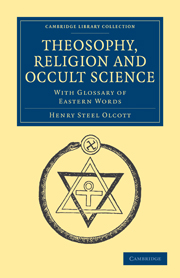Understanding the Statement
The statement "all religion is occult at its core" suggests that beneath the surface of various religious traditions lies a common, esoteric, or mystical dimension. To assess this claim, we need to explore the nature of religion, the definition of "occult," and how these concepts intersect.
Defining Occult and Religion
The term "occult" refers to knowledge or practices that are mysterious or hidden from the general public, often involving supernatural or magical elements.[1] Religion, on the other hand, encompasses a broad range of beliefs, practices, and rituals that connect individuals to a higher power, divine reality, or spiritual dimension.[2]
Esoteric Dimensions in Religions
Many religious traditions have esoteric dimensions that involve mystical or occult practices. For example, within Christianity, there are mystical traditions such as Gnosticism and Hermeticism that explore the deeper, spiritual meaning of religious texts and practices.[3] Similarly, in Islam, Sufism represents a mystical dimension that seeks a direct experience of the divine through love, asceticism, and spiritual practices.[4]
Historical Perspectives
Historically, the boundaries between religion and occultism have been fluid. The Renaissance saw a resurgence of interest in occult sciences like alchemy, astrology, and natural magic, which were often intertwined with religious and philosophical beliefs.[5] The 19th century witnessed the emergence of modern occultism as a distinct movement, influenced by figures like Éliphas Lévi and Helena Blavatsky, who drew upon various esoteric traditions to create new spiritual paths.[6]
Contemporary Views
Contemporary scholars like Wouter Hanegraaff have explored the relationship between Western esotericism and religion, suggesting that esotericism represents a "rejected knowledge" that has been marginalized by mainstream religious and scientific discourse.[7] This perspective highlights how occult or esoteric elements are present across various religious traditions.
Conclusion
The idea that all religion is occult at its core is supported by the presence of esoteric dimensions within many religious traditions. These dimensions often involve mystical or spiritual practices aimed at accessing deeper levels of understanding or connection with the divine. While not all aspects of religion are occult, the prevalence of esoteric elements across different faiths suggests a common underlying thread.
Authoritative Sources
- Occult. [Wikipedia]↩
- Religion. [Britannica]↩
- Gnosticism. [Britannica]↩
- Sufism. [Britannica]↩
- Hanegraaff, Wouter J. (2006). "Occult/Occultism". In Wouter Hanegraaff (ed.). Dictionary of Gnosis and Western Esotericism. Leiden: Brill Publishers. pp. 884–889.↩
- Pasi, Marco (2006). "Occultism". In von Stuckrad, Kocku (ed.). The Brill Dictionary of Religion. Leiden: Brill Publishers. pp. 1364–1368.↩
- Hanegraaff, Wouter J. (2012). Esotericism and the Academy: Rejected Knowledge in Western Culture. Cambridge University Press.↩

Answer Provided by www.iAsk.ai – Ask AI.
Sign up for free to save this answer and access it later
Sign up →